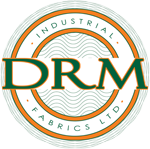Polymers and Your Process
The selection of the correct type of filter media is extremely important. Certain types of filtration equipment require specific forms of filtration media to enable them to function correctly. Filter presses, for example, utilise relatively heavy, dense woven fabric which are able to withstand high differential pressures. On the other hand, vacuum and gravity filters often use relatively light-weight wovens or needle felts. Dust filters generally use woven cotton or synthetic needle felts such as polyester, polypropylene, aramid or PTFE.
Chemical attack is a major influence on the choice of medium. Nylon, for example, is attacked by some acids but it is often suitable for use in an alkaline environment. In dust filtration, moisture in the air at elevated temperatures can cause degradation of polyester due to hydrolysis. Acidic gases can also be a major problem in air filtration, especially if the acid vapours are allowed to condense out onto the filter medium.
The following factors must be considered to ensure that your filter bags give you the best efficiency possible:
• Temperature: What are the maximum operating and surge temperatures for your process?
• Product: What are chemical(s) are you filtering? Will these react with the media?
• Abrasion: Will the filter media need to resist abrasive particles?
• Particles: What size are the dust particles?
The table below provides a guide as to what the properties of different filtration media are and where they are commonly used throughout industry.
| Polymer | Max Op Temp (°C) | Max Surge Temp (°C) | Resistance to attack by | Uses in Industry | |||
| Acids | Alkalis | Hydrolysis | Abrasion | ||||
| Polyester | 150 | 170 | Good | Poor | Poor | Excellent | Applications below 150°C with low water content eg. mining, cement, wood shavings, metal refining, gravel mills, plastics, clay, tobacco, food and pharmaceutical industries. |
| Polypropylene | 100 | 110 | Excellent | Excellent | Good | Good | Food industries (milk powder, sugar, flour), washing detergents, limestone, magnesium hydroxide grinding, calcium sulphate, fertilisers. |
| Nylon | 110 | 120 | Poor | Good | Poor | Excellent | Mainly used for liquid-solid separation. Used in the industries of chemicals, coal mining, building materials and melting and for equipment in the strong alkali operating conditions. |
| Homopolymer
Acrylic |
130 | 150 | Good | Good | Good | Fair | Bleaching powder, electrostatic paint spraying plants, lime and gypsum industries, tin and lead smelting, dye stuffs. |
| Meta-Aramid | 200 | 220 | Good | Fair | Fair | Excellent | Asphalt plants, blast furnaces, cement and lime industries. Ferroalloy smelting plants, zinc smelting, silica gel, copper smelting. |
| PTFE | 250 | 260 | Excellent | Excellent | Excellent | Poor | Applications with extreme chemical and thermal conditions. Waste incinerators, carbon black plants, coal fired boiler plants. |
| PPS | 190 | 200 | Good | Good | Excellent | Good | Applications below 180°C with extreme chemical conditions. Coal fired boiler plants and smelting industry. |
| Polyimide | 250 | 260 | Good | Fair | Fair | Good | Drying, grinding and product collection in extreme environments that are chemically and thermally challenging. Metal processing in kilns and incineration of medical waste. |
| Fibreglass | 260 | 280 | Good | Good | Good | Poor | Widely used in industry of carbon black, steel and non-ferrous metal processing and the cement industries. |

